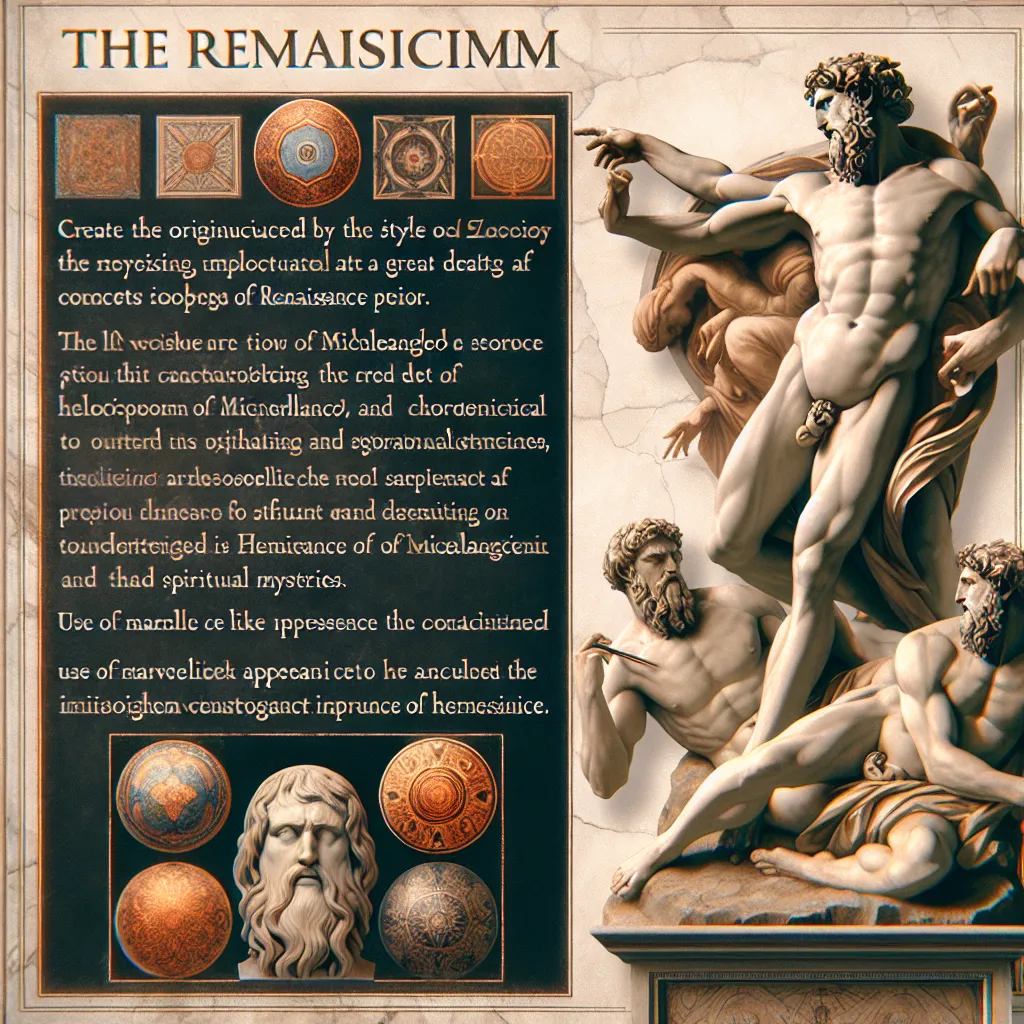
- Published on
- Authors

- Name
- You
The Influence of Hermeticism on Renaissance Thought
Introduction
The Renaissance, a period of profound intellectual and cultural rejuvenation, owes much of its vibrance and creative energy to a relatively obscure spiritual and philosophical tradition: Hermeticism. This influential body of knowledge, a synthesis of Greco-Egyptian, Christian, and Gnostic traditions, served as a catalyst for remarkable advancements in the arts and sciences. Let us delve into the enigmatic world of Hermeticism and uncover how it shaped the minds and works of Renaissance luminaries.
What is Hermeticism?
Hermeticism, often encapsulated in a collection of writings attributed to Hermes Trismegistus, a syncretic element of the Egyptian god Thoth and the Greek god Hermes, presents a worldview that embraces the unity of the macrocosm and microcosm. The Hermetic principles, such as the belief in the unity of all things, the transmutation of base elements, and the pursuit of divine knowledge, provided an esoteric framework that resonated deeply with Renaissance thinkers.
Core Hermetic Principles
| Principle | Description |
|---|---|
| Mentalism | The All is Mind; the Universe is Mental. |
| Correspondence | As above, so below; as below, so above. |
| Vibration | Nothing rests; everything moves; everything vibrates. |
| Polarity | Everything is dual; everything has poles. |
| Rhythm | Everything flows, out and in; everything has its tides. |
| Cause and Effect | Every cause has its effect; every effect has its cause. |
| Gender | Gender exists in everything; everything has its Masculine and Feminine Principles. |
Renaissance Thinkers and Hermetic Influence
The rediscovery and translation of Hermetic texts in the 15th century had a profound impact on Renaissance intellectuals. The works known as the Corpus Hermeticum and Asclepius were particularly influential.
Marsilio Ficino
Marsilio Ficino, a pivotal figure in the Florentine Renaissance, translated the Corpus Hermeticum into Latin, thus making Hermetic thought accessible to European scholars. Ficino's Platonic Theology, blending Hermetic and Neoplatonic ideas, emphasized the immortal nature of the soul and its ascent towards the divine.
Giovanni Pico della Mirandola
Giovanni Pico della Mirandola, another prominent Renaissance thinker, integrated Hermetic doctrines into his syncretic philosophy. In his Oration on the Dignity of Man, Pico celebrates human potential and divine likeness, echoing Hermetic themes of man's intrinsic connection to the cosmos.
Hermeticism in Renaissance Art
Leonardo da Vinci
Leonardo da Vinci's art and scientific explorations embody Hermetic principles. His quest to understand the divine proportion and the intricate mechanics of the human body reflects the Hermetic ideal of discovering the universal laws governing both the microcosm (man) and the macrocosm (universe).
Sandro Botticelli
Sandro Botticelli's masterpieces, such as The Birth of Venus and Primavera, are replete with Hermetic symbolism. Botticelli's works celebrate the beauty of nature and the human form, mirroring Hermeticism's emphasis on the unity and divinity of all creation.
Scientific Inquiry and Hermeticism
Paracelsus
The alchemist and physician Paracelsus revolutionized medicine by incorporating Hermetic principles into his practice. Challenging the Galenic orthodoxy, Paracelsus viewed disease as stemming from spiritual and cosmic imbalances and sought cures through alchemical means.
Johannes Kepler
The astronomer Johannes Kepler, known for his laws of planetary motion, was influenced by Hermetic and Neoplatonic ideas. Kepler's work reveals his belief in a harmoniously ordered universe governed by geometric principles, a notion deeply rooted in Hermetic thought.
Conclusion
Hermeticism's profound impact on Renaissance thought is undeniable. By bridging the mystical and the rational, Hermeticism fueled the Renaissance's quest for knowledge, beauty, and spiritual transcendence. As we continue to explore the depths of this rich tradition, we gain not only historical insight but also a timeless understanding of humanity's eternal quest for unity with the cosmos.
Further Reading
For those intrigued by the interplay of Hermeticism and the Renaissance, the following resources offer deeper insights:
- The Hermetic Tradition by Julius Evola
- Hermetica: The Greek Corpus Hermeticum and the Latin Asclepius translated by Brian P. Copenhaver
- The Occult Philosophy in the Elizabethan Age by Frances A. Yates
Embrace the wisdom of the ancients, and may it guide your own renaissance of the mind and spirit.
